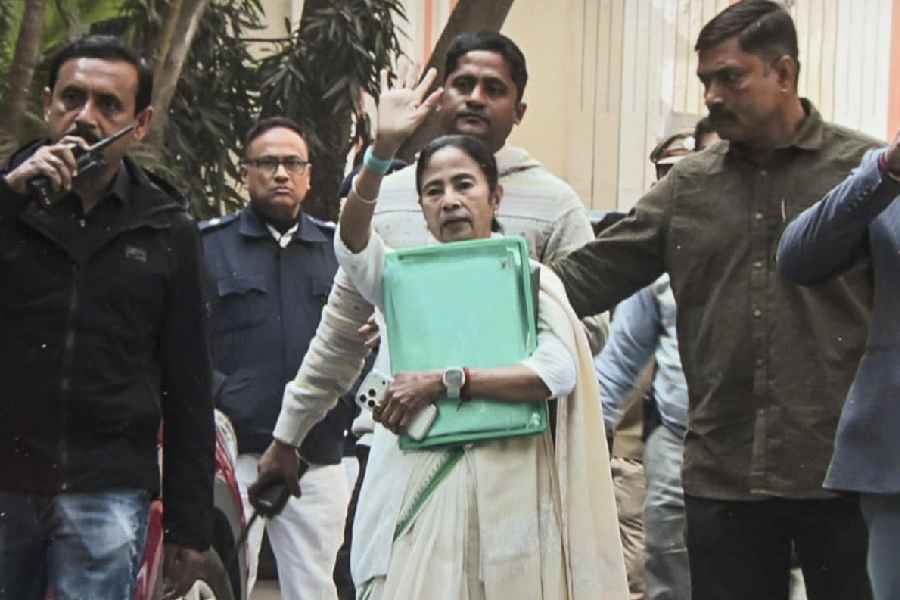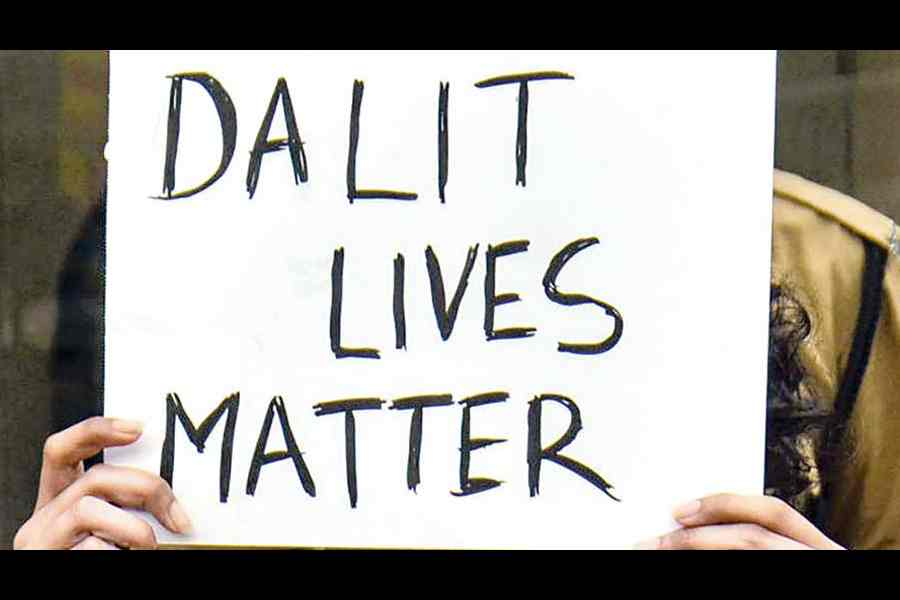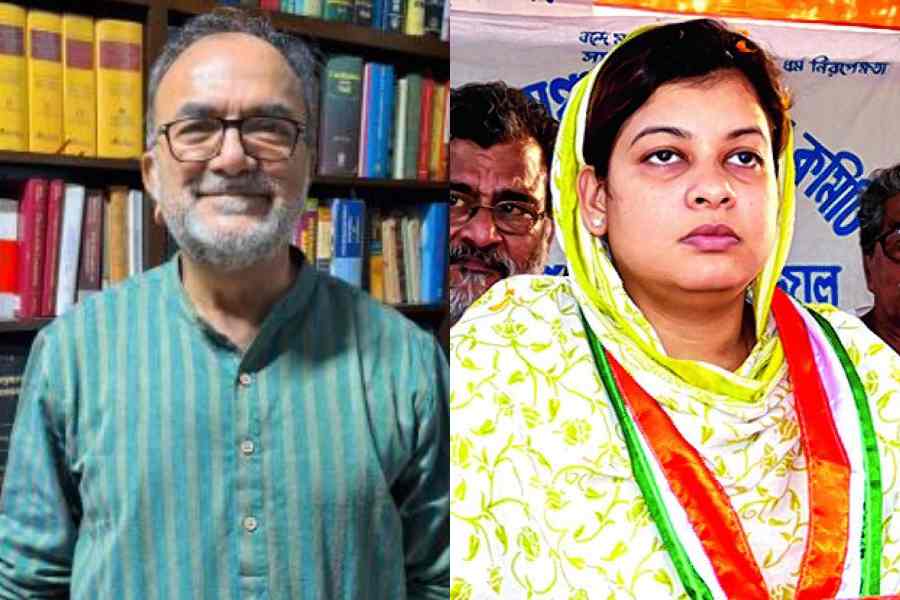 |
In an era when political acrimony did not lacerate private spaces and abuses were not traded outside Parliament and public meetings, Indira Gandhi shared her food and toiletries with a bachchi (child) who chased her for three days during a by-election campaign in Uttar Pradesh. She took on the formidable iron lady in meeting after meeting, matched slogan for slogan, decibel for decibel, and finally defeated the Congress. The “child” was Sushma Swaraj. The year was 1978, and she was 26.
Thirty-two years later, Swaraj, now 58, recounts her tryst with Indira Gandhi with the sort of awe and affection that a political leader rarely evokes in our cynical times, let alone an adversary. And Swaraj — the newly appointed leader of the Opposition in the Lok Sabha — remembers every detail.
“I was in Fatehpur at the same time as Indira Gandhi. We (in the Janata Party) had no resources, so I told our people to just get a jeep fitted with a mike and a copy of Indira Gandhi’s programme,” says the Bharatiya Janata Party (BJP) leader. Her schedule fell into a pattern — Gandhi would address a meeting, and within minutes Swaraj would reach the spot. “I would hold forth. The crowd did not budge. It was a big tamasha.”
The two even boarded the same train to Delhi. Their two groups of supporters shouted slogans, and in the ensuing melee Swaraj got into a compartment that had been reserved for Gandhi and her party. “I was in a coupe with three Youth Congress men sporting huge moustaches and was feeling a bit frightened,” she says.
She needn’t have worried. In Kanpur, when dinner was laid out for Indira Gandhi, she sent the late Gandhian Nirmala Deshpande, who was accompanying her, with food for Swaraj. “A little later, Nirmalaji returned with two of Mrs Gandhi’s security men and said they would change places with me. I was told Mrs Gandhi felt this bachchi would not be able to sleep with those (mustachioed) men around, so let her have a coupe to herself but make sure she locks it from within so that nobody troubles her.” The next morning, Deshpande came with a towel from Gandhi, who wanted her to get ready and get off the train before the crowds forced their way into the compartment to receive her.
“I glimpsed the humane side of Mrs Gandhi towards an adversary. She left a lasting impact on me,” says Swaraj.
Really?
I remind her of how vehemently she fought Sonia Gandhi’s candidacy as a Prime Minister in 2004 by threatening to shave her head and wear sackcloth. The incident had more personal than political resonances. But Swaraj is unrepentant. “I do not regret saying and doing what I said and did. I have no personal rancour against Sonia. But when I contested against her in Bellary (in 1999), I said as Mrs Gandhi’s daughter-in-law she had a right to claim the country’s love and as the Congress president we respected her. But if she becomes the PM, I will say no, no, no. Are the 100 crore progenies of Bharat Mata so useless that we can’t find a PM among them,” she argues.
She hastens to add that when she became the Opposition leader in December, the first person she called on was Sonia. “The act of opposing her PMship was a patriotic one. This gesture was to show my commitment to upholding Parliament’s prestige.”
Sonia’s reserve, says Swaraj, melted away with time because in their last tête à tête they chatted in Hindi over health and family. Once Sonia joked to Sushma that the Kannada she picked up was thanks to her and the Bellary election.
In the BJP, a party she joined in 1980, Sushma has laid certain ground rules for herself. “I have never done coterie politics, so I remain the same in adversity and prosperity. I don’t have fair weather friends who desert a leader when she’s down and out. I only have acquaintances to whom my status doesn’t matter. I never speak a word about my colleagues because doing this means demeaning yourself before the person spoken to. I don’t have media friends to plant stories against others,” she says.
Still, the going was often patchy for the leader who at 25 was the youngest cabinet minister in the country and who, even her detractors admitted, was the most charismatic face in the BJP after Atal Bihari Vajpayee. In 1998, when she was the information and broadcasting and communications minister, a coterie in the BJP, wary of her growing clout, manipulated her exit from the Centre and anointed her as the Delhi chief minister, four months before the assembly election. The BJP’s rout was in the air.
After that she was asked to contest the Bellary election against Sonia in 1999. She later told confidants it again seemed like a well-laid trap. After she lost, she was out on a limb for over a year until she was rehabilitated in 2000. She was elected to the Rajya Sabha from Uttarakhand and was re-inducted in the Union cabinet.
Did she ever think of giving it up? “No. I have two fundas in life. I worship only a single Lord — Krishna. If something good happens, I take it as Krishna’s prasad (offering). If something bad happens, I treat it as his desire. I am detached — I have none of the arrogance that comes with power. Yes, I was put through an agni pariksha (trial by fire) in the period you mentioned. I bore it with courage and patience.”
It is perhaps this “detachment” that prompts her to shrug off her recent elevation as the Opposition leader. The post carries the perks of a cabinet minister and, more importantly, she is the BJP’s first woman to break the glass ceiling, as it were. “There was never a glass ceiling. The BJP had three woman chief ministers, the first woman spokesperson and the maximum number of women ministers in Vajpayee’s cabinet,” she says.
How did the RSS, with its strong patriarchal structures, agree to a woman in a post that also bears the cachet of a “shadow Prime Minister?” Swaraj, the canny politician, says what she’s expected to. “There’s not a grain of truth in the perception of the RSS being anti-women. When Advaniji proposed my name, it was accepted with alacrity. I have a good comfort level with Sangh leaders. I speak to them in an environment free of fear and reservation and they treat me on a par with my male colleagues.”
It helped that her grandfather and father were swayamsevaks. “The Sangh pedigree and my stint in the Akhil Bharatiya Vidyarthi Parishad (ABVP, the RSS’s student wing) ingrained the values they hold dear and a sense of anti-Congressism in me.”
Swaraj, who grew up in Ambala in Haryana where her ayurved father worked, was a lawyer but gave up practising in the Supreme Court in 1977 when she became a minister in Haryana. She never returned to it.
Her husband Swaraj Kaushal, former MP and governor of Mizoram, was in her law college — senior to her in age, but a junior in college. The two were George Fernandes’s lawyers when he was arrested during the Emergency.
She is unambiguous about the new look BJP. “The new look has arrived with us three leaders (she, Arun Jaitley and BJP chief Nitin Gadkari). Young India’s aspirations have ballooned and these have to be addressed. This generation is unconnected with the freedom movement and the Emergency (the BJP’s version of Independence). What they care about is their employability in India and abroad. Our road map will be about fulfilling Young India’s aspirations.”
The leader who loves listening to old Hindi film songs and reading Hindi poetry in her private moments is not defensive about her signature Bharatiya-naari look — typified by the thick vermilion streak in her hair. “I had this sindoor on my parting ever since my marriage (in 1975). Now I meet women in West Bengal, Orissa, Uttar Pradesh and Himachal who have it on.”
She also denies that the much publicised appearance in a lehenga-choli during karva chauth — a festival in which women fast for the well being of their husbands — some years ago was politically motivated. “That day Mayavati ended her support to our government (in Uttar Pradesh). I had organised a festival for 500 BJP women. When journalists landed up for my response, it was incumbent on me as a spokesperson to speak to them on camera on an important development. It is not as though I have captured a constituency because of my sindoor and karva chauth. The persona came first and then the constituency,” she insists.
Touché.










